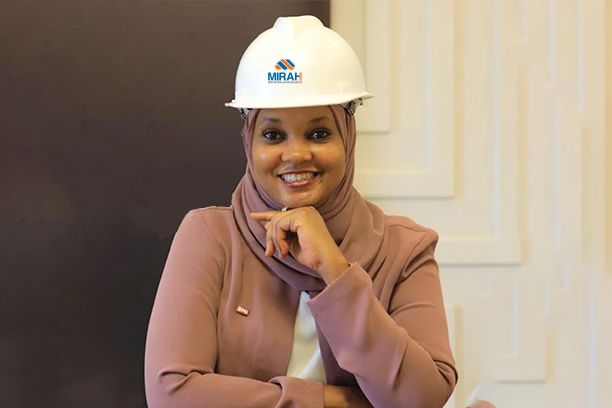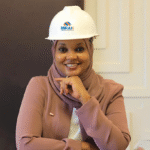In a world where heavy industries are still largely male-dominated, one woman is quietly redefining what leadership and inclusion look like—armed not with a hammer, but with vision, grit, and a heart for impact.
Meet Shamirah Namutebi, a lawyer and a certified Advocate of the High Court of the Republic of Uganda. Who transitioned into metal fabrication, not just to change her own career path, but to open doors for women who’ve long been excluded from this space. Today, she is the founder of Mirah Metal Fabrication and Construction Works, a social enterprise that equips young women with practical skills in welding, fabrication, and construction.
What began as a small workshop during the COVID-19 lockdown has grown into a powerful movement. Shamirah saw potential where others saw limits, especially for women. She knew many girls were dropping out of school, struggling to find employment, or surviving under vulnerable conditions. So she stepped up.
Among the notable projects in Shamirah’s growing portfolio was her engagement with Ham Agro Processing Industries. Her work had gained visibility through media coverage, particularly her efforts to train and uplift underprivileged individuals, especially women, through fabrication skills. This caught the attention of businessman Hamis Kiggundu, who subcontracted her to contribute to the agro-processing project. Following her strong delivery on that assignment, she was later awarded a contract for maintenance and repair services at the Nakivubo War Memorial Stadium.
Her movement of women empowerment in a traditionally baptized male dorminated & gender equality has attracted international bodies like the World Bank, United Nations, Mastercard Foundation, this has given her a milestone. She formalized her initiative and launched the Mirah Incubation Hub, a space in Kampala offering free training and dignified employment to young women.
“But this isn’t just about skill-building. It’s about mindset transformation.”
“We’re not here to prove anyone wrong,” Shamirah says. “We’re here to show what’s possible when women are given tools, support, and belief.”
Her story has since captured the attention of global development agencies. Her workshop was featured by the World Bank, and her trainees have exhibited their creations at major national events — including one officiated by Uganda’s First Lady, Hon. Janet Museveni.
Her most powerful achievement? Watching her first group of five trainees in Metal Fabrication, women she once defended pro bono as a lawyer, who were survivors of domestic violence.
Back then, they came to her seeking legal protection. She gave them more: a path to self-reliance, urging them to stop waiting for support that never came and instead create it for themselves.
Today, at Mirah, they’re not just shaping metal, they’re rebuilding lives, restoring dignity, and lighting the way for others to follow.
Key Takeaways for Change-Makers:
- Inclusion in industry requires intentional effort—Shamirah’s story proves that grassroots initiatives, when aligned with vision and opportunity, can break barriers.
- Empowerment isn’t charity—it’s strategy. When women thrive, communities and economies grow.
- Social impact and business success can coexist—Mirah Metal Fabrication works with real clients, creates jobs, and keeps its mission at heart.
A Final Thought:
Shamirah’s journey is a reminder that real transformation often begins quietly—when someone decides to build where others only see barriers.
Let’s keep making space for women—not as exceptions, but as equals.




